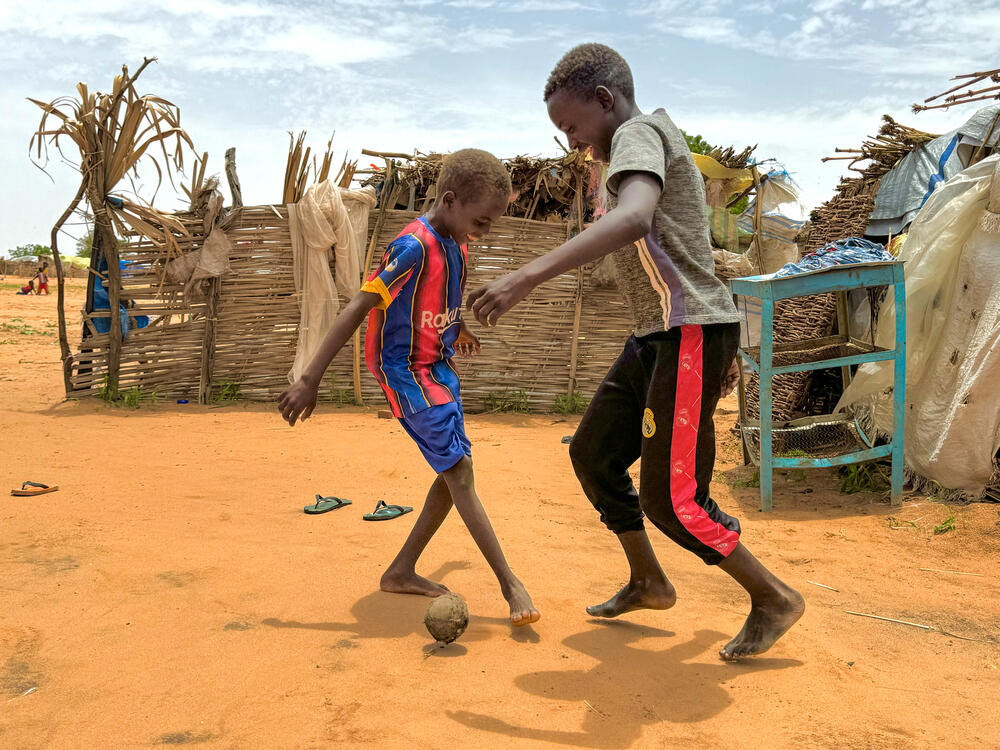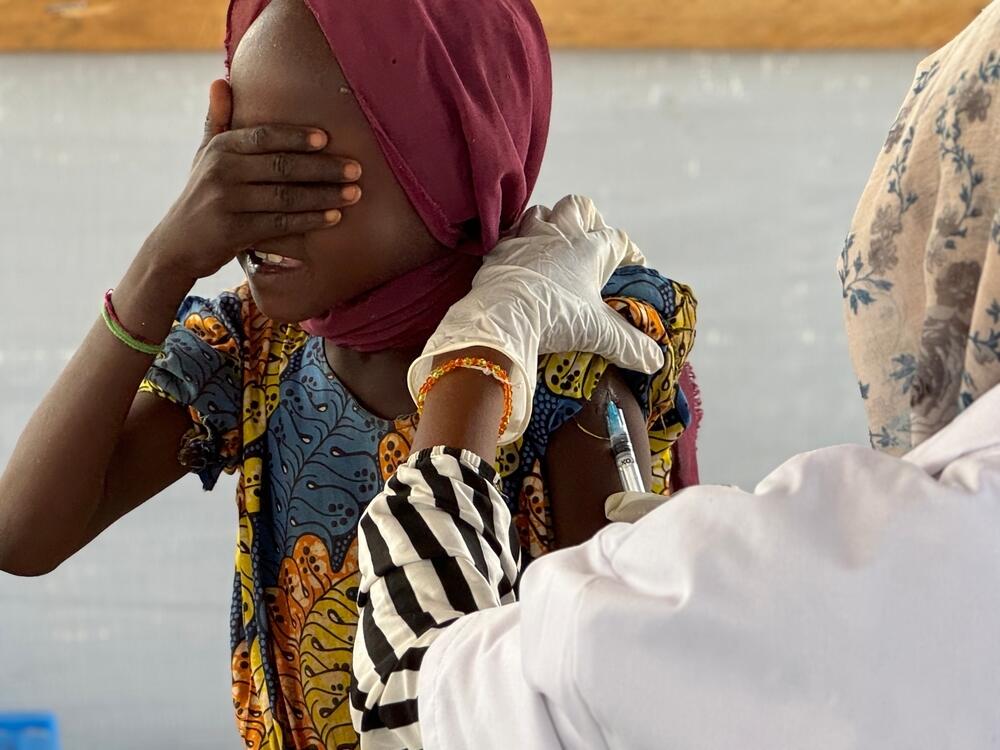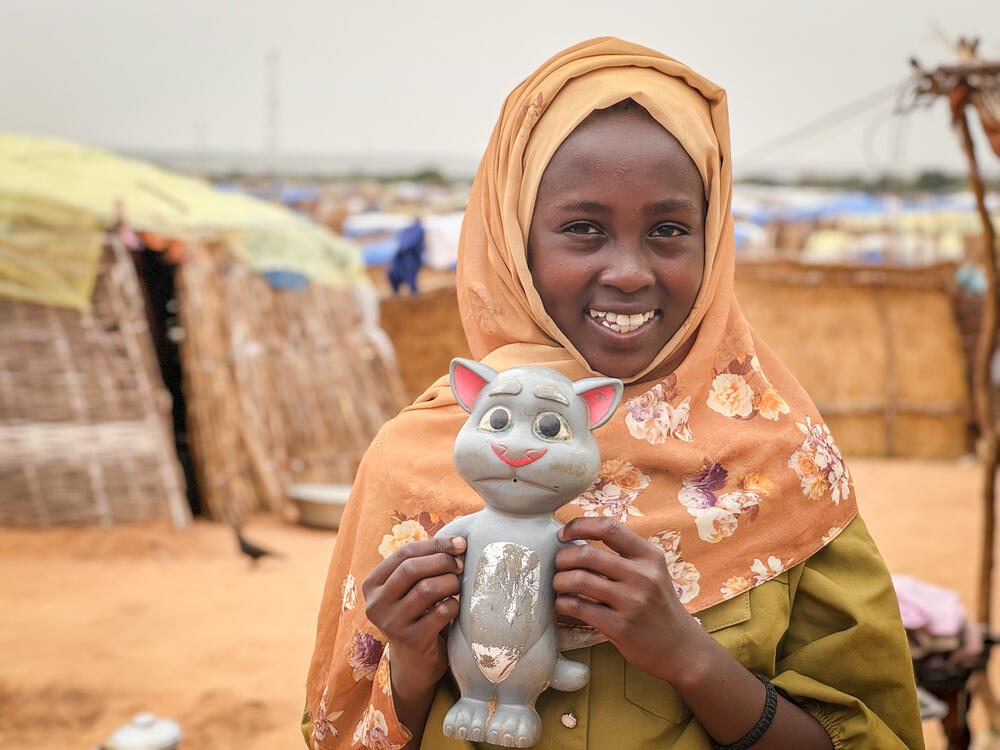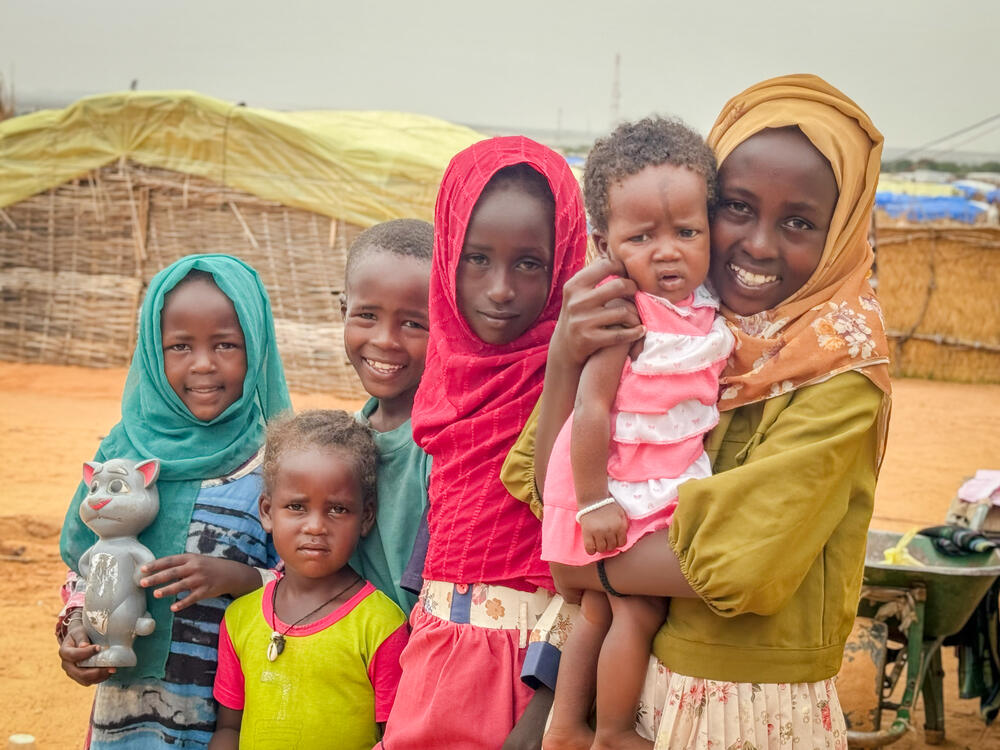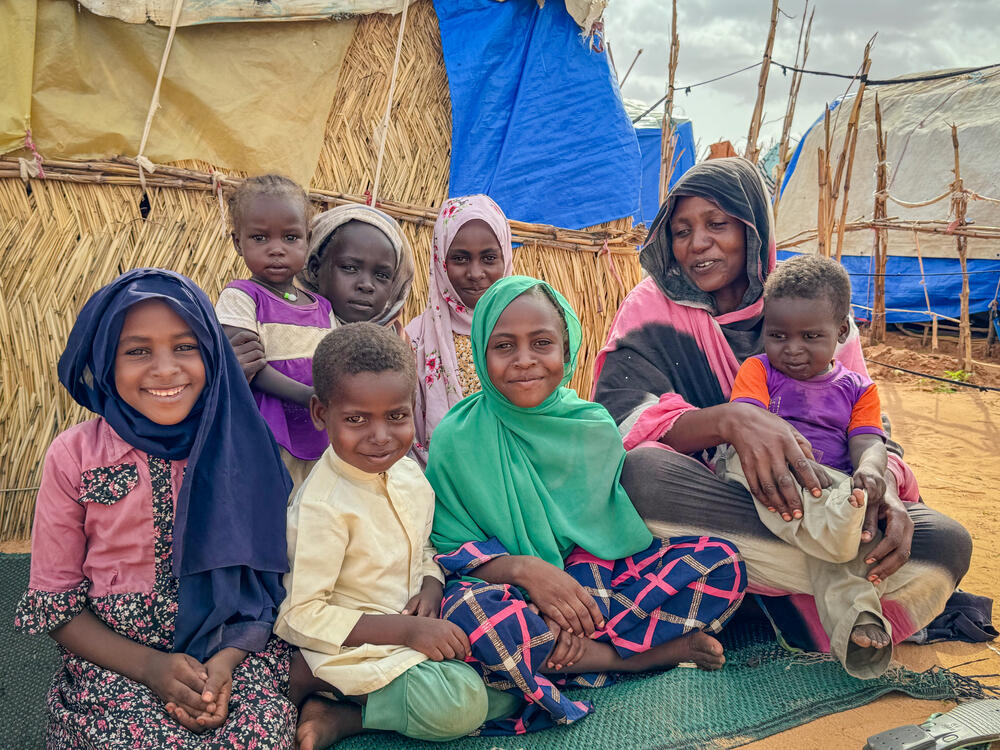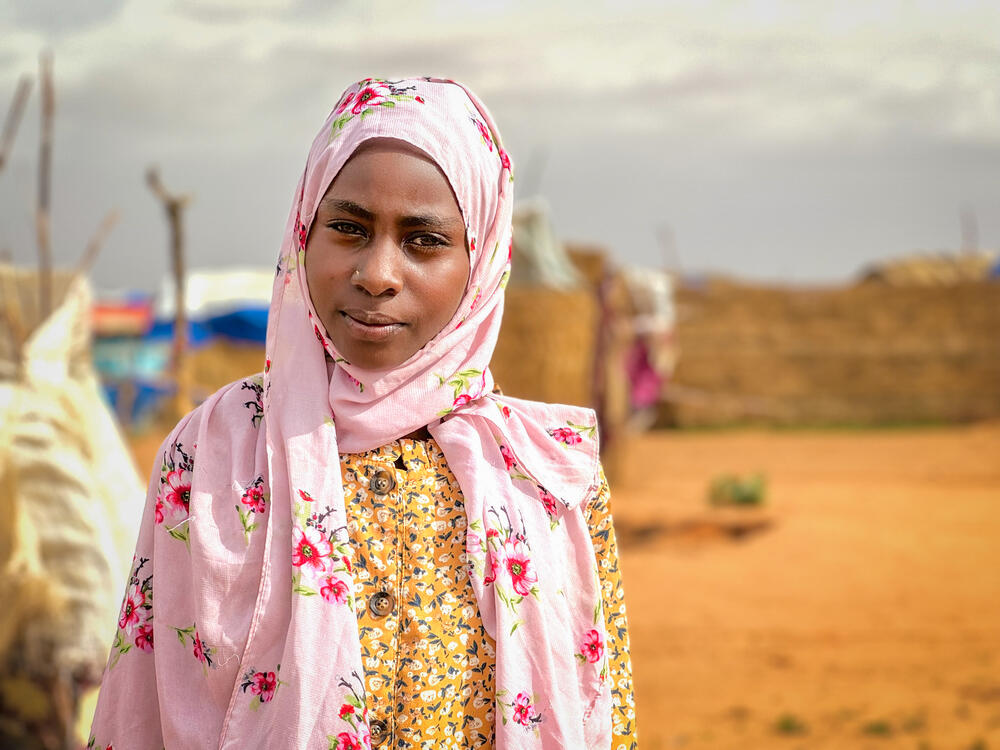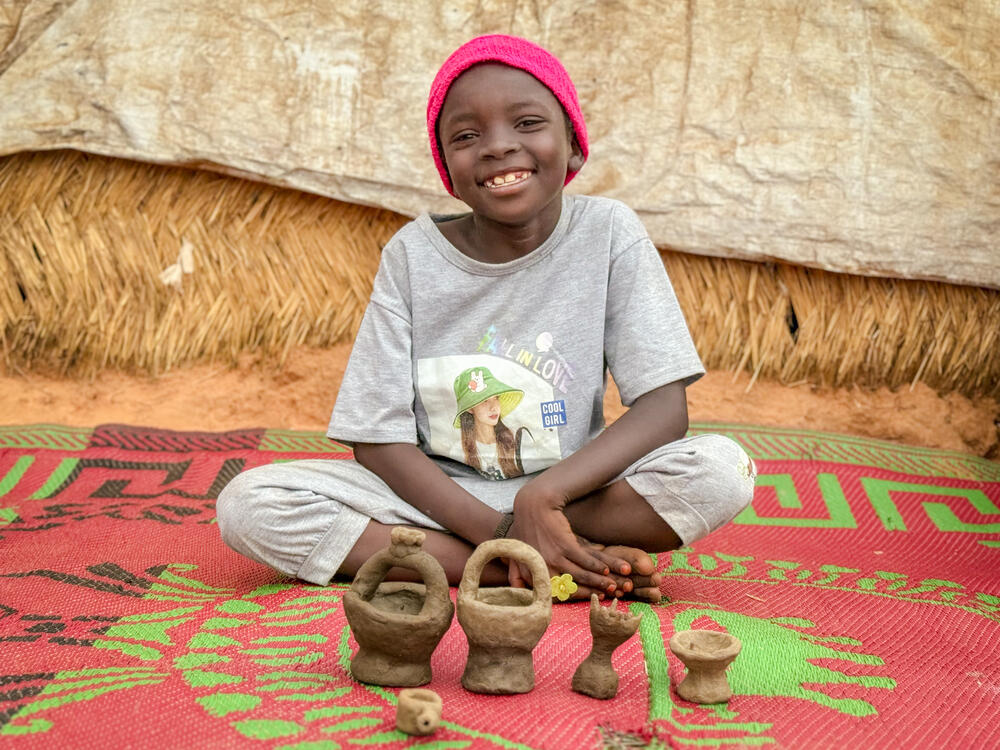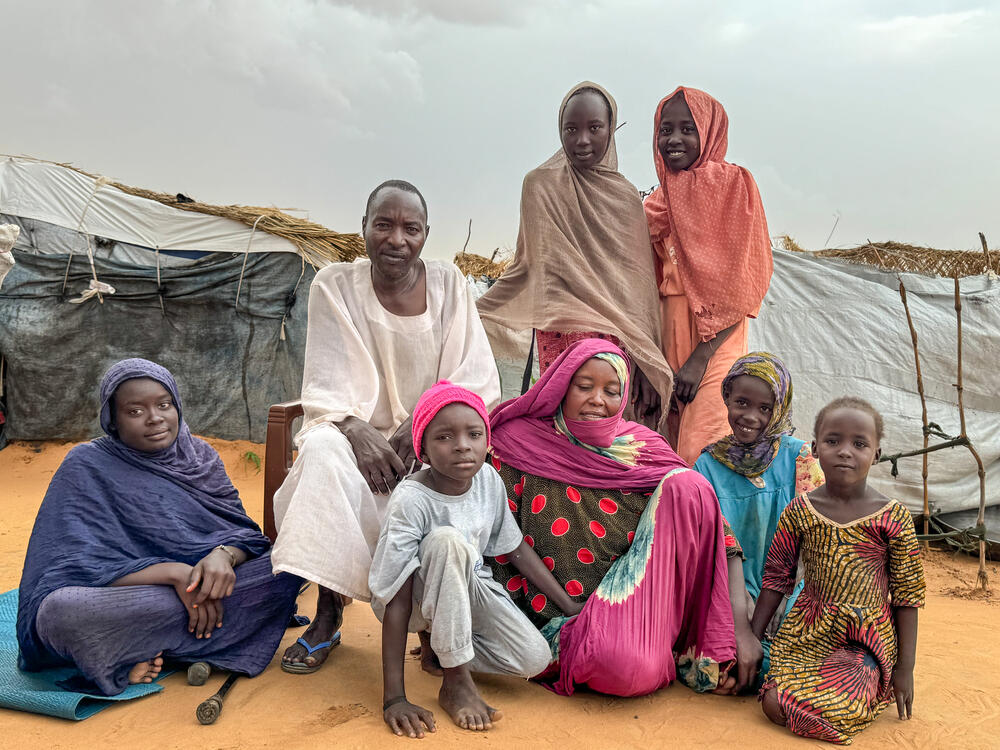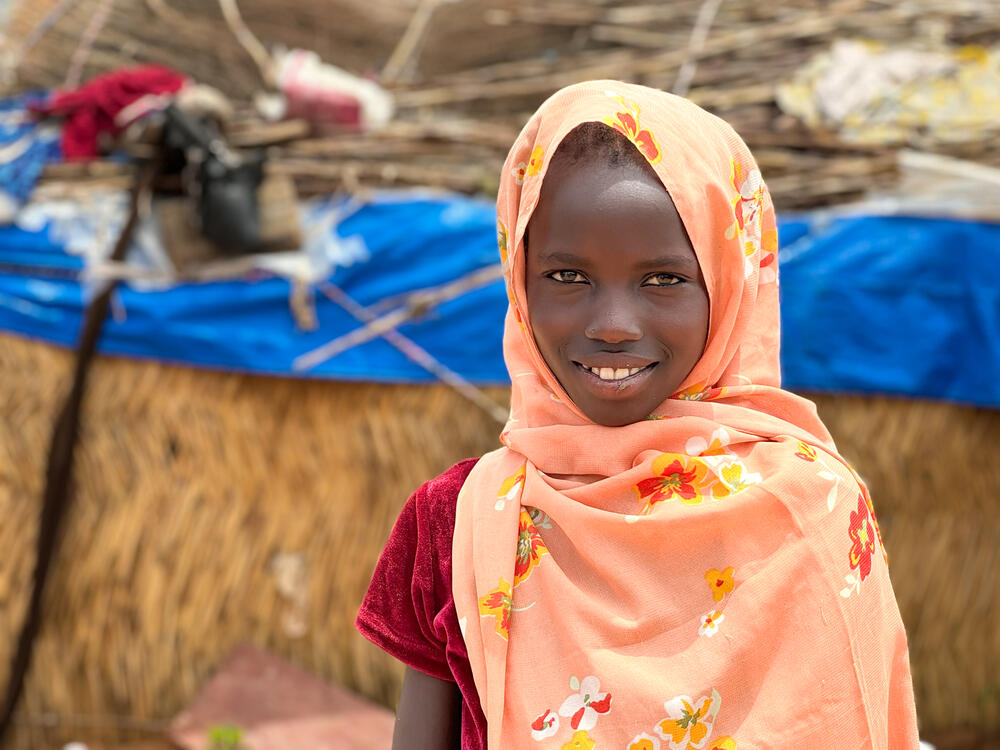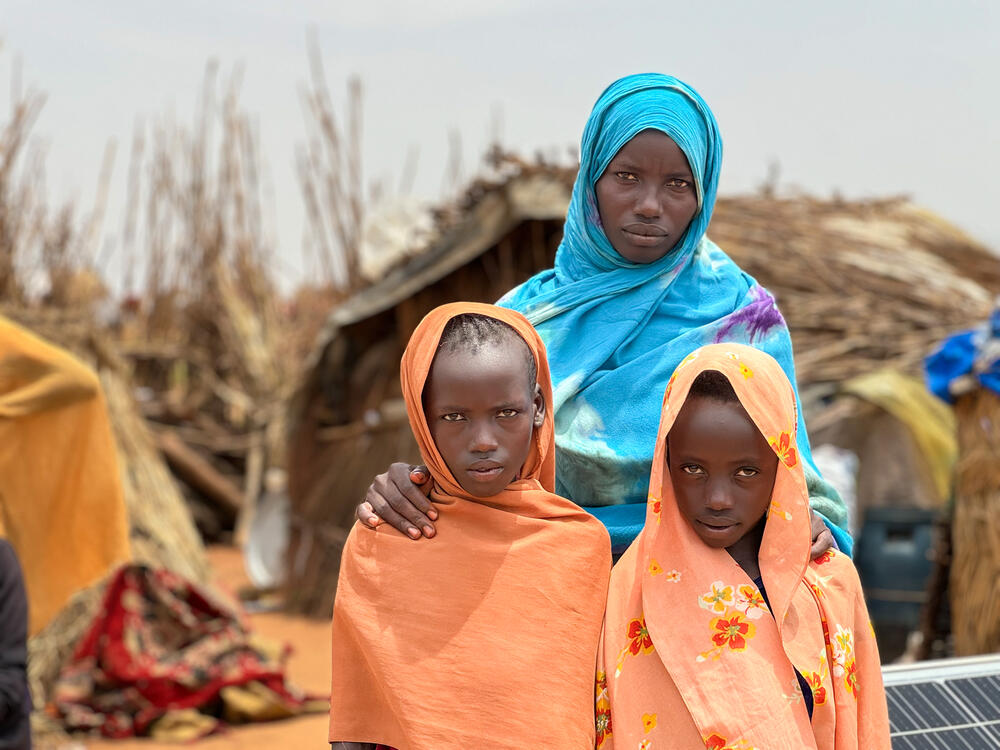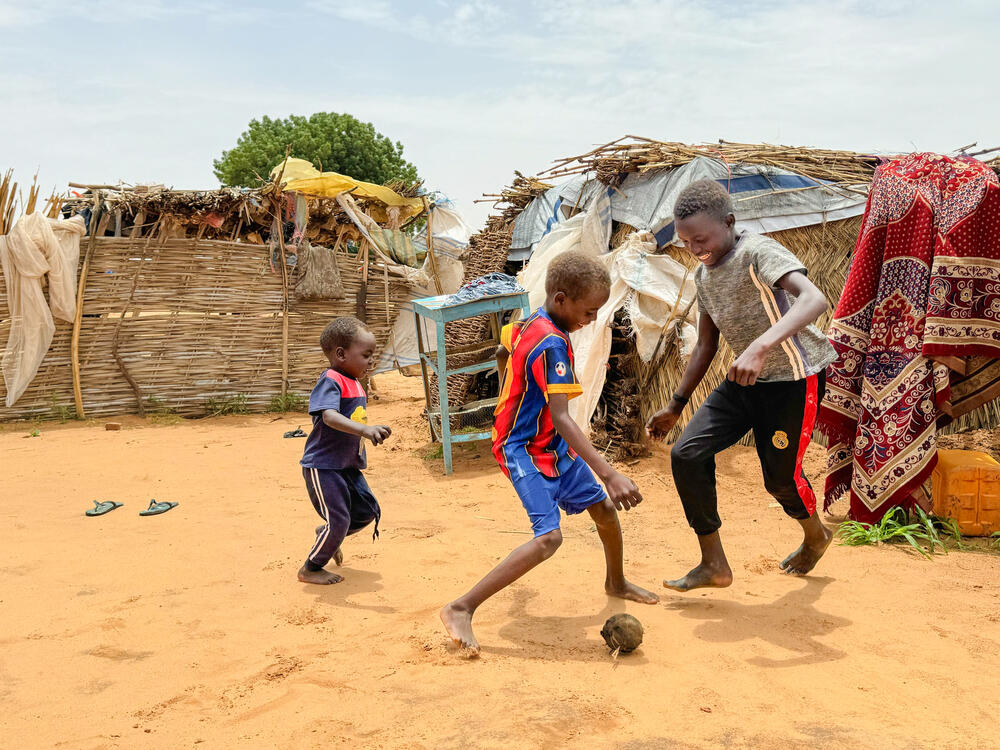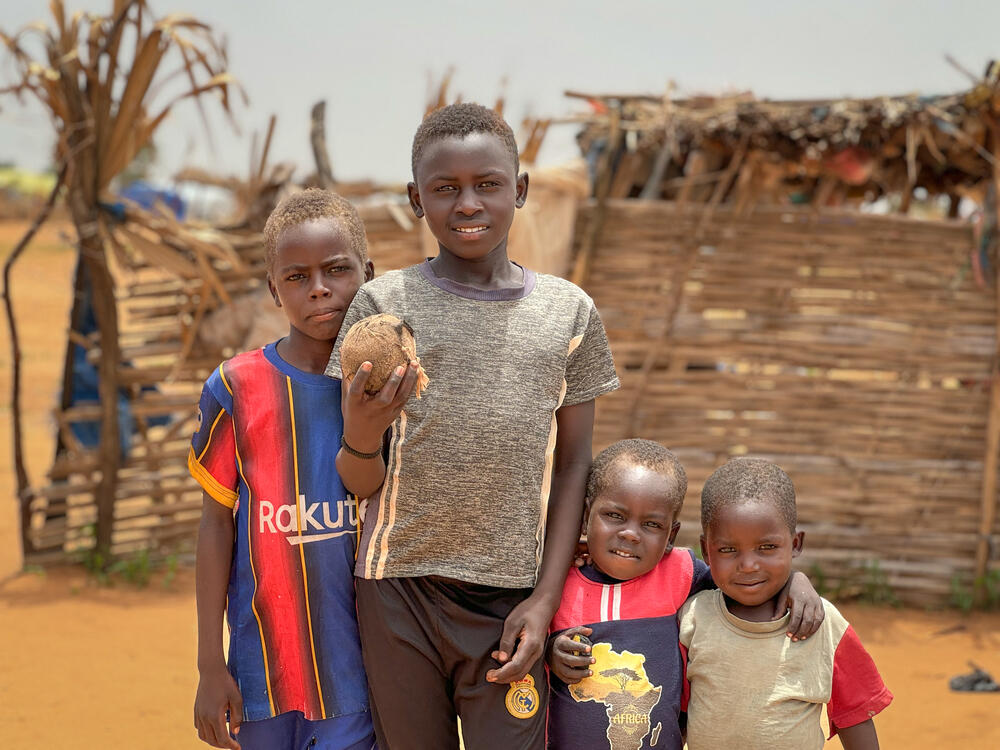Being a child in a refugee camp: “Why are there no schools here?”
Sudanese children, aged seven to 12 years old, speak about their life in Adré transit camp in East Chad, having fled the war in Sudan. They speak of their talents, hobbies, worries, and future wishes.
MSF has been responding to the medical and humanitarian needs of the hundreds of thousands of refugees who fled Sudan to Eastern Chad after the outbreak of war in April 2023.
In July, MSF carried out a measles vaccination campaign for children in Adré transit camp.
During six days, more than 22,000 children and teenagers received the measles vaccine.
Mushtaha, 10 years old
“I miss sitting on chairs; we have none here, we always sit on the floor”
All of Mushtaha's family come from El Geneina, the capital of West Darfur, except her youngest sister who was born in the maternity unit supported by MSF in Adré reference hospital five months ago.
“I have four sisters and one brother. My little sister was even born in Adré’s hospital, five months ago. We all live together with our dad and mum.
My mother has a little shop in front of our shelter where she sells sweets. Life was different before we came here. We lived in El Geneina, and now we've been in these shelters for nine months. Life is hard in the camp.
Here, there's no electricity, so no watching TV… I loved watching MBC3, a channel for children. I miss sitting on chairs; we have none here, we always sit on the floor.
We are at the middle of the desert, so there are no trees to play under either. My parents built a shelter with a metal roof to sleep under, and that's where we stay and where we play.
When we fled from El Geneina, we brought some toys with us: a few dolls and the Talking Tom cat. But Tom, the toy, doesn’t talk anymore because he has no more batteries.
In El Geneina, I used to go to school. But here, there is no school. Why are there no schools here? I want to be a doctor, and work with MSF. But how, now I am out of school?
I remember when we first came here, the first humanitarian team we saw was MSF: we call them “Ataba” (Arabic for ”doctors”). When my siblings or I get sick, that’s where we go. Last time I went to MSF, it was for a measles vaccination. I didn’t cry when I received the shot, unlike my little sister. It didn’t even hurt me.”
Zamzam, 12 years old
“If possible, I would go back to my city today”
Zamzam has been in Adré transit camp for around 15 months, she’s from El Geneina, West Darfur capital.
“The living conditions here in the camp are hard. We have no clothes, no proper meals, no electricity, and no school. We came walking from Sudan. Everything we had was taken from us during the journey.
I am the oldest of five siblings. I like being the big sister because I can give instructions to the little ones. What I miss the most is going to school. I was good student, always among the top three in my class.
Here, there is nothing special to do. We stay at home all day long, in the shelter that my mother made or in our little yard, but there's no shade to stay in. I know “Ataba” (Arabic for “doctors” referring to Doctors Without Borders) as well.
I've been to their clinic once when I was sick, and I also got vaccinated against measles recently. It was a painful shot for me but none of my siblings who took the vaccine cried. Everyone was very brave.
In the future, I want to be a doctor to take care of people. If possible, I would go back to El Geneina right away, even today if it were possible, and I would go back to school immediately. It is my country, and I would not hesitate for a second if it was safe.”
Medical care where it's needed most
Help us care for people caught in the world's worst healthcare crises.
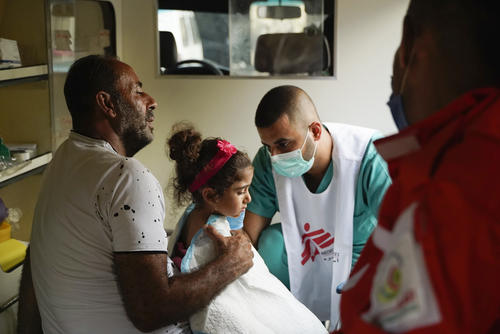
Rayan, 7 years old
“I create a tea toy set with the mud of the rain. Would you like a cup of tea?”
Rayan is from Ardamatta, North-East of El Geneina. She arrived in East Chad one year ago.
“Life is okay here. At least here, we don't hear gunshots. I like to do pottery, making little pots, cups, teapots, and “mabakhar” (Arabic word for censers used to burn fragrant herbs to perfume the room). I make everything with the mud I find in the camp after the rain and let it dry in the sun.
I play tea party with other children. Back in Sudan, my favourite moment at school was at the end of the class when they gave us a toy tea set to play with. But since I'm not going to school anymore, I made one on my own so I can keep playing.
I know MSF very well. I've been there once when I was sick and once when I got vaccinated from measles. Later, I also want to be a doctor. The main reason is to take care of my dad, who had his leg amputated because of diabetes (this happened in Sudan).
Since he's been in Adré, he has been going to MSF clinics several times to get his bandage changed. Now, he’s fine. But, my mother is now the only one who can work to cover the family's needs. She's okay with any tasks, from cleaning clothes to picking up bricks.
My mum came here first with my five sisters and me to set us up in the camp and then went back to Ardamatta to find my dad and bring him here on a cart. When people asked me if I would like to go back home, I say, “No. I’m fine here.””
Ouman, 11 years old
“I love cooking. If I had any flour, I could cook pastries. You know fried doughnuts?”
Ouman, 11, is from El-Geneina. She has arrived in Adré transit camp five months ago.
“Life in the camp is not okay. I arrived here five months ago from El Geneina. I am the second youngest of nine siblings, three boys and six girls. Our shelter is too small, and we don’t have plastic sheeting yet. It’s complicated when it rains. We don’t have enough food nor blankets or mats on the ground.
The wife of my brother gave birth under the shelter one month ago. She found no health structure to take care of her. She was sick for a while, but finally, MSF helped her, and now she’s doing better.
I often go to the local market in the camp to buy food and help with cooking, usually rice and tomato sauce. But I wish we had more flour so I could cook pastries like fried doughnuts.
In El Geneina, we felt comfortable, but not here. Here, there are no schools and no electricity. There was a religious school in our block in the camp before, but not anymore. If given the choice, I would go back to Sudan right away.
In the future, I would like to be a “volunteer leader” in the camp because I want to change things for better for the displaced people, ensuring all aid is distributed equally to everyone. If I could change anything, I would build a school here.
In the camp, I usually play with my friends. We build little houses or animals, like horses or donkeys, with mud. We enjoy playing with them, but most of them fell to pieces with the last rain. Sometimes, we put a rope in a tree to make a swing and play there all day long.
Two good friends of mine have their shelter not far from mine. I knew them from El Geneina; we were in the same class there. Now we are living in the same block in this refugee transit camp.”
Mazim, 12 years old
“This is how we play all the time: Madrid against Barcelona”
Mazim, 12, is from El-Geneina, the capital of West Darfur and is one of the tens of thousands of children who have fled Sudan to eastern Chad since the outbreak of the war in April 2023.
“I am from El Geneina. I am the oldest of six siblings, with two sisters and three brothers. I have been here for more than a year and also share the shelter with two of my cousins. My aunt, my mum’s sister, went back to Sudan a few weeks ago to try to find her husband, who has been missing for months.
Life here is okay. My days consist of playing football, praying, and playing football again. When playing football, I always have the same position: wing-back. My favourite team is Real Madrid. Look! I have their logo on my sweatpants. And my favourite player remains Cristiano Ronaldo, even though he’s not playing there anymore.
My brother, he’s for Barcelona, he wears their jersey all the time. This is how we play all the time: Madrid against Barcelona.
At first, we had a ball, but it has worn out over time. So, we stuffed a sock with plastic and play with that now.
There is a football pitch nearby the camp, that’s where we play, always the same 24 kids, enough to assemble two teams. I met some of them in the camp but knew others from El Geneina already.
Often, neighbours who fled are in contact during the journey from Sudan, so those who arrive first wait at the border to welcome the new arrivals and take them to their block so they can settle there. In that way, we recreate our former neighbourhood in the camp and stay surrounded by the ones we know.
Sometimes, I also go around the camp to pick up wood for my mother to cook with. I also have to do some work to support my family. I am a part-time cobbler. I go to the market several times a week to polish shoes and repair others as I learned to sew.
The food given by humanitarian organisations is not enough, so I buy a little of vegetables and even meat as these are not provided by the aid.
In the future, I would like to be a doctor, to help and heal people—"all the people." I know MSF as they run a paediatric clinic not far from the border. I have been there once, with the mother of my friend who was there.”
MSF and the crisis in Sudan
On Saturday 15 April 2023, intense fighting broke out across Sudan, forcing hundreds of thousands of people over the border to South Sudan and East Chad. More than a year later, life for refugees and host communities remains dire.
People in transit camps have limited food, water, shelter, sanitation facilities, and medical care; malnutrition is rife.
Médecins Sans Frontières / Doctors Without Borders (MSF) supports the local medical teams to provide a high level of care and medical supplies that is crucial for assisting a population that is in dire need of humanitarian assistance.
